The automotive industry continues to evolve rapidly with the introduction of high-performance electric vehicles. Among the latest contenders in this segment are the Audi A6 e-tron Avant and the BMW i5. Both vehicles offer cutting-edge technology, impressive range, and luxury, making them compelling options for fans of electric mobility. This article compares these two remarkable vehicles across various technical aspects and innovations.
Audi A6 e-tron Avant vs BMW i5 - Differences and prices compared
Compare performance (551 HP vs 601 HP), boot space and price (55200 £ vs 60200 £ ) at a glance. Find out which car is the better choice for you – Audi A6 e-tron Avant or BMW i5?
Powertrain and Performance
The Audi A6 e-tron Avant showcases a range of power outputs, with options spanning from 326 HP to an impressive 551 HP, thanks to its dual-motor all-wheel-drive system. The A6 e-tron Avant also boasts remarkable torque figures, reaching up to 855 Nm, which translates to exhilarating acceleration capabilities. It can whisk from 0 to 100 km/h in just 3.9 seconds with the more potent variant, making it a true performance wagon.
In comparison, the BMW i5 is offered with three different power levels, peaking at 601 HP. The dual-motor variant also offers a substantial torque figure of 820 Nm, allowing it to ace the 0-100 km/h sprint in a brisk 3.8 seconds. The i5 prioritizes a sporty drive without sacrificing driver comfort, further cementing BMW’s longstanding reputation for performance.
Electric Range and Efficiency
One of the key aspects of an electric vehicle is its range. The Audi A6 e-tron Avant impressively manages an electric range of up to 716 km with its larger 94.9 kWh battery, making it a strong choice for long-distance travels. Consumption figures are equally commendable, with the most efficient variants averaging around 14.8 kWh/100 km.
On the other hand, the BMW i5 delivers a maximum range of 582 km with a smaller 81.2 kWh battery. While the range is slightly less than that of the A6 Avant, the i5 still stands out with its efficiency, registering a consumption rate around 15.9 kWh/100 km. Both vehicles are classified under CO2 efficiency class A, aligning with their commitment to sustainability.
Interior Comfort and Technology
Both vehicles prioritize luxury and technological advancements in their interiors. The Audi A6 e-tron Avant offers a spacious cabin designed for comfort, accommodating five passengers with ease. Its trunk capacity stands at 502 liters, making it practical for everyday use and road trips alike. The infotainment system is cutting-edge, providing seamless connectivity, a high-resolution display, and intuitive controls.
Meanwhile, the BMW i5 provides a slightly more dynamic sedan experience, with a slightly smaller trunk capacity of 490 liters. However, it compensates with a driver-focused layout and an impressive array of infotainment and connected features, including advanced driver-assistance systems and high-tech displays. Overall, both interiors cater to luxury and technological innovations, ensuring a comfortable ride for everyday activities.
Exterior Design and Dimensions
The design language of both vehicles reflects their respective brands. The Audi A6 e-tron Avant presents a modern and sleek profile that is quintessentially Audi, measuring 4928 mm in length and 1923 mm in width. Its wagon form combines practicality with aesthetics, appealing to a variety of buyers who require space without compromising style.
In contrast, the BMW i5 features a sportier, more aggressive stance, stretching to 5060 mm in length but remaining slightly narrower at 1900 mm. This sedan's design emphasizes its performance capabilities while showcasing BMW’s distinctive style. Both vehicles are designed to turn heads and offer a premium feel, but the choice between a wagon and a sedan ultimately boils down to personal preference.
Final Thoughts
Both the Audi A6 e-tron Avant and the BMW i5 are impressive representatives of the electric vehicle movement, each showcasing their manufacturer’s strengths. The A6 Avant excels in range, practicality, and a luxurious wagon format, while the i5 leads with exhilarating performance and sportiness. Prospective buyers will find it important to weigh their specific needs and preferences when choosing between these two exceptional models.
Here’s where it gets real: The technical differences in detail
Costs and Efficiency:
Looking at overall running costs, both models reveal some interesting differences in everyday economy.
Audi A6 e-tron Avant has a slight advantage in terms of price – it starts at 55200 £ , while the BMW i5 costs 60200 £ . That’s a price difference of around 4929 £.
In terms of energy consumption, the advantage goes to the BMW i5: with 14.70 kWh per 100 km, it’s minimal more efficient than the Audi A6 e-tron Avant with 14.80 kWh. That’s a difference of about 0.10 kWh.
As for electric range, the Audi A6 e-tron Avant performs slightly better – achieving up to 716 km, about 89 km more than the BMW i5.
Engine and Performance:
Power, torque and acceleration are the classic benchmarks for car enthusiasts – and here, some clear differences start to show.
When it comes to engine power, the BMW i5 has a hardly perceptible edge – offering 601 HP compared to 551 HP. That’s roughly 50 HP more horsepower.
In acceleration from 0 to 100 km/h, the BMW i5 is hardly perceptible quicker – completing the sprint in 3.80 s, while the Audi A6 e-tron Avant takes 3.90 s. That’s about 0.10 s faster.
In terms of top speed, the Audi A6 e-tron Avant performs slight better – reaching 240 km/h, while the BMW i5 tops out at 230 km/h. The difference is around 10 km/h.
There’s also a difference in torque: Audi A6 e-tron Avant pulls slight stronger with 855 Nm compared to 820 Nm. That’s about 35 Nm difference.
Space and Everyday Use:
Beyond pure performance, interior space and usability matter most in daily life. This is where you see which car is more practical and versatile.
Both vehicles offer seating for 5 people.
In curb weight, Audi A6 e-tron Avant is slight lighter – 2185 kg compared to 2195 kg. The difference is around 10 kg.
In terms of boot space, the Audi A6 e-tron Avant offers hardly perceptible more room – 502 L compared to 490 L. That’s a difference of about 12 L.
When it comes to payload, BMW i5 slight takes the win – 545 kg compared to 500 kg. That’s a difference of about 45 kg.
Who wins the race in the data check?
The Audi A6 e-tron Avant holds a very small edge in the objective data comparison.
This result only shows which model scores more points on paper – not which of the two cars feels right for you.
Costs and Consumption
View detailed analysis
Engine and Performance
View detailed analysis
Dimensions and Body
View detailed analysis
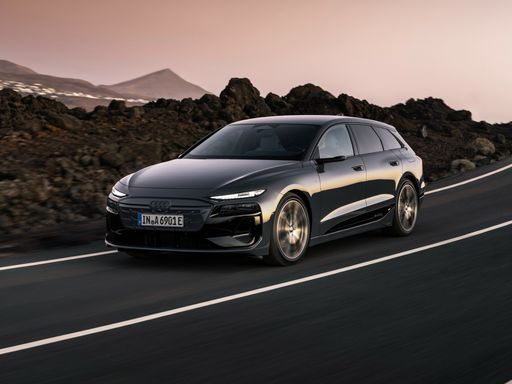
Audi A6 e-tron Avant
Audi A6 e-tron Avant
The Audi A6 e-tron Avant wraps Audi's trademark refinement into a sleek electric estate that looks at home in the city or on the open road. Inside it's grown-up and tech-forward with practical packaging for family life, delivering a composed, confident drive that makes everyday hauling feel a bit more special and slightly futuristic.
details
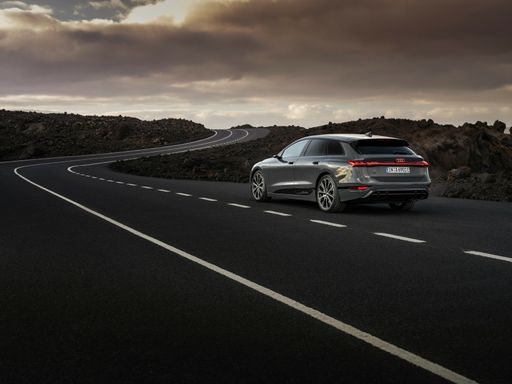
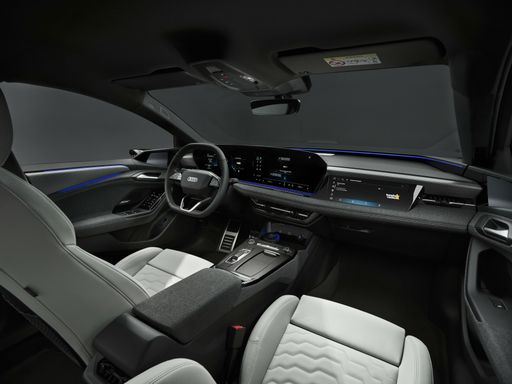
BMW i5
The BMW i5 swaps predictable executive-car manners for a confident electric vibe, marrying refined comfort with surprisingly engaging steering. It’s a practical choice that doesn’t feel dull, offering the kind of clean, premium experience that makes commuting feel like a small indulgence.
details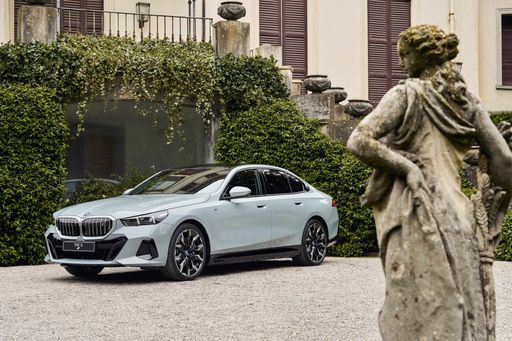
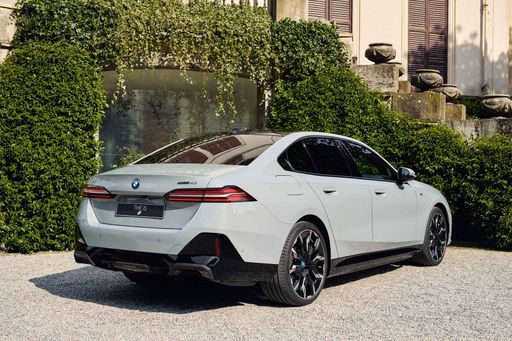
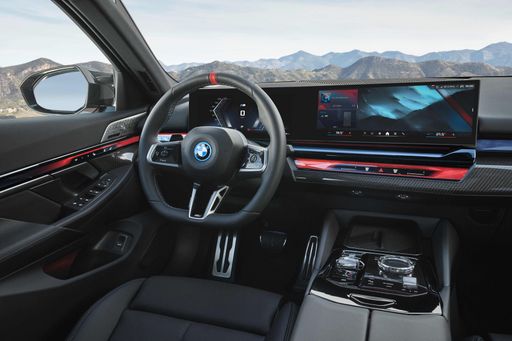
Costs and Consumption |
|
|---|---|
|
Price
55200 - 100100 £
|
Price
60200 - 85300 £
|
|
Consumption L/100km
-
|
Consumption L/100km
-
|
|
Consumption kWh/100km
14.8 - 17 kWh
|
Consumption kWh/100km
14.7 - 17.1 kWh
|
|
Electric Range
539 - 716 km
|
Electric Range
540 - 627 km
|
|
Battery Capacity
75.8 - 94.9 kWh
|
Battery Capacity
81.20 kWh
|
|
co2
0 g/km
|
co2
0 g/km
|
|
Fuel tank capacity
-
|
Fuel tank capacity
-
|
Dimensions and Body |
|
|---|---|
|
Body Type
Estate
|
Body Type
Sedan
|
|
Seats
5
|
Seats
5
|
|
Doors
5
|
Doors
4
|
|
Curb weight
2185 - 2410 kg
|
Curb weight
2195 - 2370 kg
|
|
Trunk capacity
502 L
|
Trunk capacity
490 L
|
|
Length
4928 mm
|
Length
5060 mm
|
|
Width
1923 mm
|
Width
1900 mm
|
|
Height
1504 - 1527 mm
|
Height
1505 - 1515 mm
|
|
Max trunk capacity
1422 L
|
Max trunk capacity
-
|
|
Payload
470 - 500 kg
|
Payload
525 - 545 kg
|
Engine and Performance |
|
|---|---|
|
Engine Type
Electric
|
Engine Type
Electric
|
|
Transmission
Automatic
|
Transmission
Automatic
|
|
Transmission Detail
Reduction Gearbox
|
Transmission Detail
Reduction Gearbox
|
|
Drive Type
Rear-Wheel Drive, All-Wheel Drive
|
Drive Type
Rear-Wheel Drive, All-Wheel Drive
|
|
Power HP
326 - 551 HP
|
Power HP
340 - 601 HP
|
|
Acceleration 0-100km/h
3.9 - 6 s
|
Acceleration 0-100km/h
3.8 - 6 s
|
|
Max Speed
210 - 240 km/h
|
Max Speed
193 - 230 km/h
|
|
Torque
435 - 855 Nm
|
Torque
430 - 820 Nm
|
|
Number of Cylinders
-
|
Number of Cylinders
-
|
|
Power kW
240 - 405 kW
|
Power kW
250 - 442 kW
|
|
Engine capacity
-
|
Engine capacity
-
|
General |
|
|---|---|
|
Model Year
2024
|
Model Year
2023 - 2024
|
|
CO2 Efficiency Class
A
|
CO2 Efficiency Class
A
|
|
Brand
Audi
|
Brand
BMW
|
What drivetrain options does the Audi A6 e-tron Avant have?
The Audi A6 e-tron Avant is available as Rear-Wheel Drive or All-Wheel Drive.
